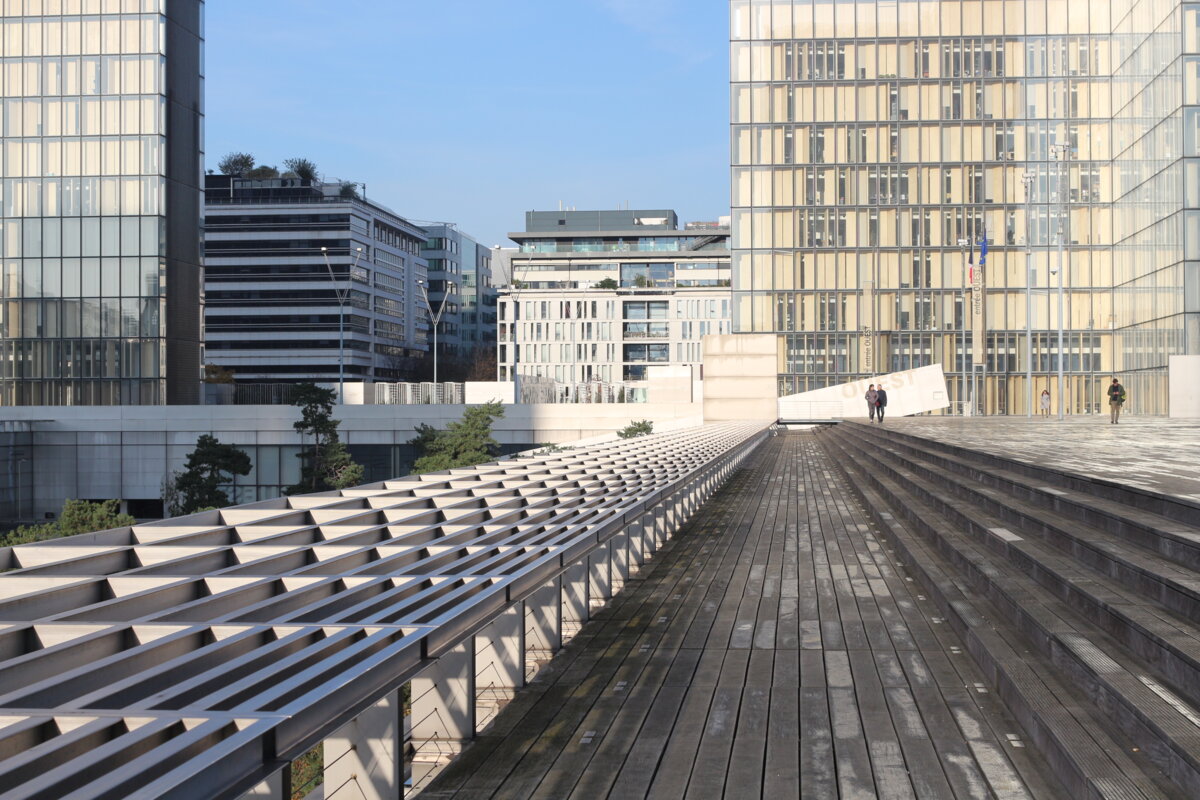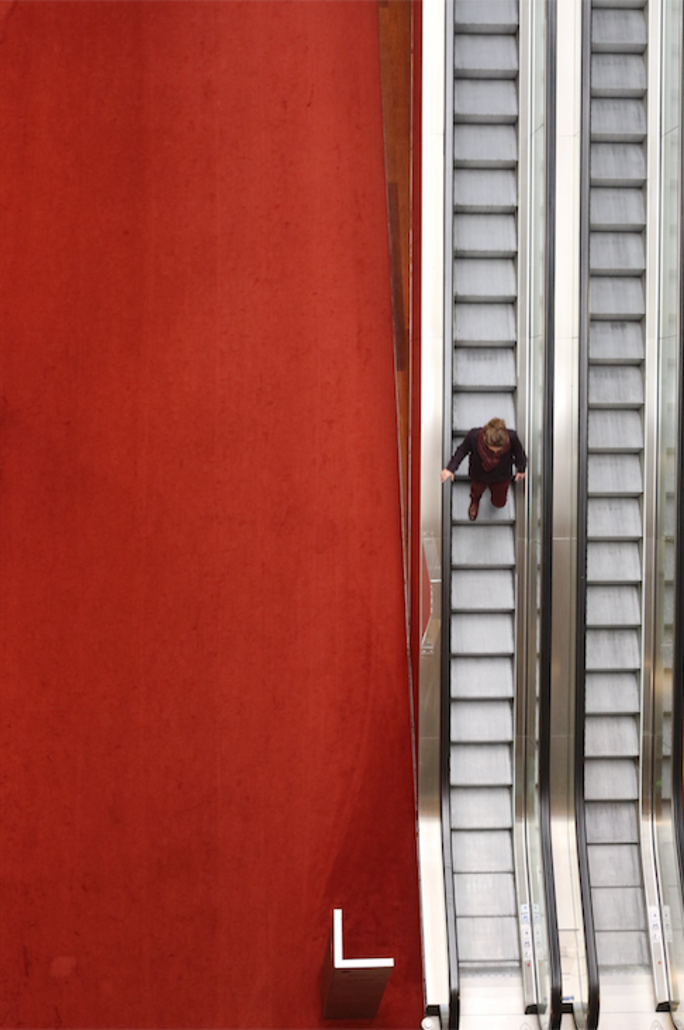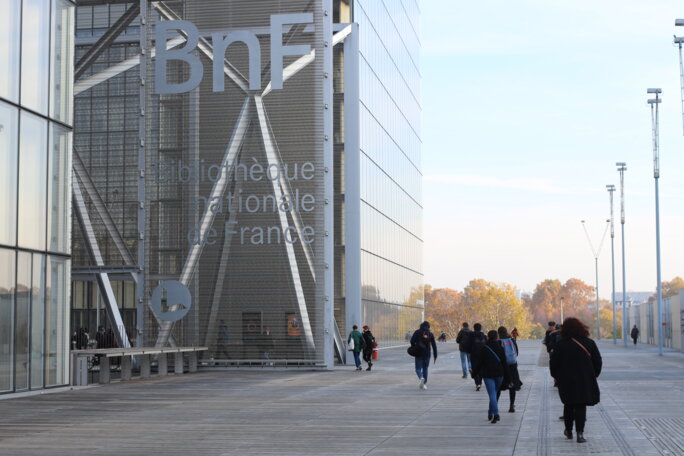A small forest with a magnificent canopy lies at the heart of France's national library site in Paris, the Bibliothèque François-Mitterrand. The building, designed by architect Dominique Perrault, and whose distinctive towers are in the form of open books, has overlooked the River Seine in the south-east of the capital since 1995. Its raised plaza with wooden boards, a space open to the elements, was quick to attract visitors and passers-by.
However, over the last decade or so years a series of tragic events have cast a shadow over this beautiful spot. Six people have jumped from the elevated plaza, plunging into the mini-forest at the centre of the building. None of them survived. Two other people have fallen from the building's 'forest streets', though they did not die. And in 2015 an employee killed themselves by jumping from the T3 tower into the forest garden.

Enlargement : Illustration 1

More recently, at around 5am on December 8th this year, a girl fell accidentally when she was walking on the guardrail, according to a witness. She is still said to be in a critical condition. This latest tragedy brings the number of falls at the site to four in 2019, of which one was fatal.
The trade unions representing staff at the library agree that action needs to be taken. They have called for the guardrail on the plaza and the terraces to be raised - at the moment they can easily be climbed – even if this means shattering the architectural unity of the building. They also want better safety precautions in the so-called 'cathedrals', the majestic halls inside the library itself. These are currently protected from a sheer drop by a glass wall which is hip high.
This issue has been discussed since 2015 and has been examined six times by the library's health and safety committee the Comités Hygiène, Sécurité et Conditions de Travail (CHSCT) which includes representatives from both management and the staff. In 2017 a schedule of works costing 3 million euros was finally proposed. The plan was to raise the plaza's guardrail with a high glass wall. But none of the work has yet been carried out. “An emergency that's lasting a long time,” said one member of staff with bitter irony when questioned by Mediapart.
“The BNF [editor's note, the site is part of the Bibliotheque Nationale de France] thinks it isn't able to do it financially,” said Fabrice Larcade, from the trade union SUD Culture Solidaires. “Management also said they didn't want to get into a dispute with Dominique Perrault, who has moral rights over the building as architect. For the staff from the reading rooms who are present at these tragedies and [library] users that's an intolerable thing to hear.”
“These falls obviously cause emotion everywhere and at all levels,” said Kevin Riffault, the director of administration and personnel at the library. “We're completely on the case and there has to be an effective response. It's not a question of cost, but we don't have enough guarantees about the effectiveness of such a measure when it comes to stopping determined suicidal individuals.” The glass wall project also raises “problems of architectural integrity because - as is only normal – Dominique Perrault possesses a moral right over this work,” said Kevin Riffault.
The architect's practice did not respond to Mediapart's request for a comment.
The library's management insist they have not sat on their hands. In October 2019, just a few weeks after a new tragic event and another showdown with the unions, they announced that they had ordered specific signage for use on the plaza with the help of a psychologist who specialises in suicide prevention. “A sign, a warning, some obstacle in the path, it can have a decisive effect,” said management.
From November, too, the security guards' rounds were due to patrol all of the plaza during the daytime. However, according to staff these patrols have not yet started and are already causing some concern. “We're warning about the potential psychological impact on a member of staff who has a strong chance of being present at and unable to do anything about a tragedy, and who can thus face the double shock of seeing a person jump and feeling guilt for not having been able to stop it happening,” said Fabrice Larcade of the union SUD Culture.
The union pointed out that cuts in staffing levels at the library in recent years have also impacted the internal security teams. In under ten months the François-Mitterrand site of the national library has lost around 10% of its staff. Moreover, the surveillance on the plaza is planned for daytimes only; “during the library's opening hours”, as management says. Yet the accidental falls have all taken place at night or in the early morning.

Enlargement : Illustration 2

The CGT, the majority trade union at the library, points to the recent intrusion by two men with a drone onto the roof of one of the main towers. “The overall level of security at the site has gone down,” said the union's assistant secretary Gaël Mesnage, who points to the high turnover of staff at the company to whom the task of guarding the site was subcontracted some years ago. “Too many people from this security company don't know the BNF or don't know it very well, and are still waiting for their badges to be able to move freely around the library, meaning they can't intervene quickly on what is a site of several hectares,” he said.
A key question is why the measures outlined above, which seem straightforward and inexpensive, were not put in place earlier, by 2017 at the latest. “I arrived here in June 2018 so I don't have any knowledge about that,” said Kevin Riffault. “The new [library] president Laurence Engel took up her position in 2016 and immediately launched a study into it. First of all we were looking at a technical response. The other responses were developed later, by consulting some institutions who have to manage public spaces of the same nature,” he said. The institution said it found it difficult to understand why there had been repeated suicide attempts and falls in recent years. “Between 1995 and 2009 nothing happened as far as I know!” said Kevin Riffault. “Then we had a death in 2009 and then nothing more for two years. So it might have been considered to have been an isolated incident.”
The library management also said they had approached Dominique Perrault's architectural practice to ask them to carry out a study next year on the feasibility of modifying the 'forest garden' guardrail to provide what it calls “greater safety guarantees”. However, Mediapart understands that the study already carried out in 2017 had been carried out by an agency experienced on the question of preventing suicide. They had, for example, worked with France Télécom – now Orange – and on a trunk road in the Paris region at the request of a local highways agency. That study cost the BNF 24,000 euros plus tax.
“One of the key points of this case is the issue of Perrault and his rights over all work which changes the look of his architectural handiwork,” said the CGT's Gaël Mesnage. “But it's also about big bucks: though we've already paid out thousands of euros, we've now having a new study, this time carried out by Mr Perrault's practice. But the BNF is not a cash cow!”
Fabrice Larcade, from the trade union SUD Culture Solidaires, shared this sense of irritation. “A new study, at what cost and how long will it take? We're back to square one,” he said. Management said that the work would be carried out for the same budget. But Gaël Mesnage warned: “Without a helping hand from the Ministry of Culture it seems to be in jeopardy.”
A key issue, apart from the fatal falls themselves, seems to be the way that the management supports staff at the site who witness the tragedies they work in the reading room or the exhibition hall on the first floor. “We're sometimes more shocked by the reaction of our management than by these acts themselves, “ said 'Luc' – not his real name – who works in a store at the site.
He told Mediapart: “When a person fell on September 30th [2019] we got no information. For more than an hour we had to respond to [library] users without knowing what was happening. We saw everything from the glass doors. It was like a road accident but in the library.”
Another member of staff who witnessed the incident and was very shocked asked if she could leave work but was asked to stay on to ensure “continuity of the public service”. The staff also say they had to insist that at least part of the readings rooms were closed and the users evacuated.

Enlargement : Illustration 3

“The plan in this kind of case is well-known,” countered personnel director Kevin Riffault. “The crisis coordinator takes the immediate decision to evacuate the rooms close by and establishes a security perimeter to allow the emergency services to intervene and to protect the public. The subsequent interventions take quite a long time if there is a death, because the police must get involved and you have to work out a suitable way to get the dead victim out.”
But Fabrice Larcade from SUD Culture Solidaires said this was not the case in relation to the September tragedy. “When the emergency services' intervention came to an end, there were attempts from the director of the department [concerned] and from the director of collections to put pressure on the staff to reopen,” he said. “And it was indeed the staff working in this department who refused to open the room despite these pressures.”
In none of these cases was a specific psychological support cell set up to help staff, even though the management did remind employees that they can consult the workplace psychologist and doctor who are based in the building. “It's something that works well, we've had good feedback,” said Kevin Riffault. “Along with the director general we met all the staff who were 'first on the scene' and who all remarked on the great quality of support they got from the medical team.”
After the accident on Sunday December 8th management at the BNF sent a message to all library staff reminding them of its “total commitment to avoid further falls, whether deliberate or accidental”. Meanwhile union representative Fabrice Larcade said he was now begging management to take rapid action. “What worries us is the way that this has just been treated as normal for years,” he said.
-------------------------
If you have information of public interest you would like to pass on to Mediapart for investigation you can contact us at this email address: enquete@mediapart.fr. If you wish to send us documents for our scrutiny via our highly secure platform please go to https://www.frenchleaks.fr/ which is presented in both English and French.
-------------------------
- The French version of this article can be found here.
English version by Michael Streeter


